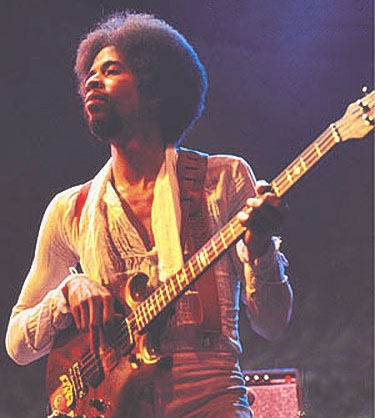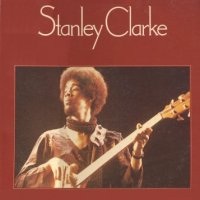Oh man, it's so good to see George Duke (I'm a big fan, going back to his days with Don Ellis, Zappa and Jean-Luc Ponty). But I must admit my spine cringed involuntarily when I saw his Yamaha CP-70 piano. It's two parts: the keyboard part, and an actual baby grand cast-iron soundboard. I grunt every time I see one. Can't help it.
I played for about ten years with a blind keyboardist who gigged with one - and a Hammond B3 (w/Leslie). Those things are insanely heavy. I cannot remember how many times we broke the springs on my old '67 Ford 1/2 ton pickup, before I finally bought a 1 ton step-van with a lift gate (that broke the second time we used it). I was using an SVT at the time, of course. Heavy wasn't just an adjective back then.
I don't want to derail your lovely thread about Stanley Clarke, so please return the topic to a locked upright position after this inadvertent segue to a related topic:
I think Stanley had his Alembic set up for piccolo in that video, if I'm not mistaken. 1988 was right around the time he switched to the Carl Thompson for that. It wasn't until a few years ago that I read that Carl Thompson didn't build all of them (according to the late
Ed Roman's rant on ghost-built guitars:)
quote:Carl Thompson used Ron Blake to Ghostbuild hundreds of basses including one for Les Claypool, Stanley Clarke and Jeff Berlin. In fact Ron Blake built most of the Carl Thompson custom basses for over 15 years.
While you're there, check out this rather astonishing sentence:
quote:Alembic - Bruce Becvar Ghostbuilt Led Zeppelin's John Paul Jones Alembic Omega Bass.
Ed's dead, so there's no way to verify that, but Alembic could.
As for the arguments on that page about Slash's ghost-built Les Pauls,
this is one of the rare occasions when everybody's right. Well, thank God that digression is over, because I'll talk (and write) about Stanley Clarke all day. He came along at a pivotal moment in my evolution as a bassist. I'm not a fan, this is deeper than that. I play absolutely nothing like him, but he's the one that showed me that was possible, with his musical freedom and humor.

I'm talking about this Stanley. Look at that right hand. I came from string bass, too, from the time I had to stretch tippy-toe for that damned F.
Maestro Clarke came along in 1974, when I was 17. I was trying to decide on doing the academic route of classical string bass, or being a rock star with my buds. Hmmm, what to do. My hair was down nearly to my waist, I lived about thirty miles from Hollywood and the siren calls of fame beckoned.
On the other hand, I love string bass and classical music with a passion. And in general the parts are easy to learn and the whole vibe is on playing together, more so than any other kind of music.
This was such a huge deal to me at the time, because I simply had no idea that you could do both.
Then this happened.

The first thing I saw was that right hand, and I knew - before I'd even unwrapped the album - that it was going to change my life. In all honesty, I've never even attempted to play a single Stanley Clarke lick, out of sheer respect. That's not what that album meant to me. It was simply that he came from the same core as me - playing together - but unleashed as freedom and humor. I laugh out loud at Lopsy Lou, every time.
And Life Suite is well-named.